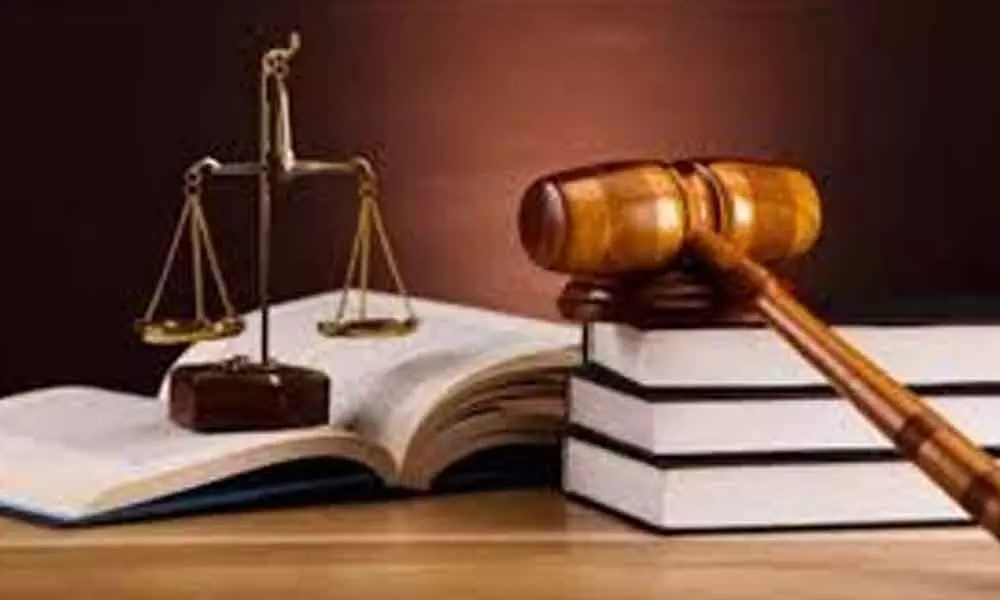Abrogate criminal defamation law

Issue fresh go on congregations within 24 hours: Telangana High Court
C S KrishnamurthyThe explicit observations in the recent ruling by the Delhi court in "M J Akbar vs. Priya Ramani" case, among others, include:
C S KrishnamurthyThe explicit observations in the recent ruling by the Delhi court in "M J Akbar vs. Priya Ramani" case, among others, include:
(a) "Right of reputation can't be protected at the cost of right to dignity". (b) "A woman has the right to put her grievance at any platform of her choice, even after decades". (c) "Most of the women who suffer abuse do not speak up about it or against it for the simple reason "The Shame" or the social stigma attached with the sexual harassment and abuse".
It's, however, puzzling that the victim had to defend herself and be acquitted. Did taking the social-media route instead of filing a sexual harassment case end up in her having to defend a defamation case? What grows from within this culture is an attitude of impunity. The rich and the resourceful rely on their invulnerability, and the 'superiority' allows them to do what they do. The criminal proceedings for defamation will have an alarming effect on the victims and induce fear in them against reporting the wrongs committed on them. There cannot be a resolute Priya Ramani in every victim and fight the offenders. Though it is triumphant for the journalist, the acquittal is only half the battle. If Akbar escalates, will all the "20 women" whom he has allegedly wronged follow Priya Ramani?
Sec.499/500 of the Indian Penal Code (IPC), relating to criminal defamation, is a colonial legacy, so its current relevance must be evaluated with the provisions of the Constitution. The law of defamation contemplates the clash of two fundamental rights - the right to freedom of expression and the right to reputation. The rules of defamation laws are said to be designed to mediate between these two rights. Though defamation hurts a person's dignity, criminal libel has a dreadful effect on free speech. Not only intimidating, the imprisonment for conviction also dampens the citizens' drive to engage in legitimate public critique.
Several jurisdictions are steadily doing away with the criminal defamation laws, whose provisions are incompatible with the basic democratic ideals.
Journalists and whistleblowers alert the public on impending disaster, substandard healthcare, unfair polls, faulty systems and procedures…… That is why the Act to support whistleblowers has not seen the light of the day. Threats of punitive criminal Acts by the powerful would kick start libel journey that will enter into the realm of public good, decimating public debate. Law Commission has acknowledged that criminal defamation law goes against freedom of speech and "violates international norms". Defamatory acts that may harm public order are covered by civil provisions, and hence criminal defamation does not serve any dominating public interest. Though Sec.499 provides safeguards by means of exceptions, the threat of criminal prosecution is in itself unreasonable and excessive. PILs have been filed in Supreme Court to declare this law as unconstitutional. Amnesty International recommended that "if defamation is retained as a criminal offence, the law should not use imprisonment as punishment for those convicted of defamation, in line with international standards of freedom of expression. The onus of proof of all elements of the offence should be on the state." Acts like murder, rape, robbery…are punishable with imprisonment, threat to public, too. But slander is between two parties and the defamed has an opportunity to respond to allegations unlike in the former where the individual liberty is snatched. Political libel needs a different treatment. As opposed to a private individual, a political/public figure has the benefit of a political stage and media to launch counterattacks. Criminal defamation laws, in the context of public prosecutions, place the political elite at a distinct institutional advantage which uniquely enables them to forget critics and dissuade them from future dissent. It must be distinct from private libel, or else one runs the risk of snuffing out criticism that is not malicious.
A salutary lesson
The late Robert Maxwell, the owner of the British Newspaper, Daily Mirror, who plundered his own workers' pension fund, when confronted by investigative journalists on his financial shenanigans, threatened them with defamation charges, thus shutting up the media efforts to expose him. It is only after his death in 1991, the truth came out, destroying many pensioners' lives. When a reader shares a possibly libelous article to a friend, is that "friend" liable for libel, too? Virtually anything can be seen as offensive, and something that is both true and important is bound to offend somebody. Truth emerges from free-speech systems, not from gags and controls. While social media network enables everyone to air their views, the present structure of the 19th century provisions, is very restricting. Even though freedom of speech and expression is not absolute and is subject to "reasonable restrictions," these checks should be in accordance with the current trends in society. The defamation laws have always faced friction with Article 19(2) which gives freedom of speech "chilling effects." Under the defamation law, a journalist has no special status. Socio-economic and political circumstances have enormously changed over the century. Hence, criminalising defamation can be an extreme step. For public debate to remain robust, people should be able to express their opinions without fear of prosecution. We cannot protect the vulnerable unless we protect those who blow the whistle on abuse of power. "Freedom of information" according to Win Tin, a Burmese journalist, "is the freedom that allows us to verify the existence of all other freedoms." Democracy merits the informed consent to be governed.








